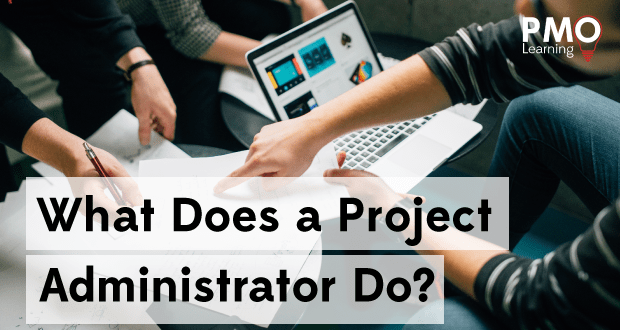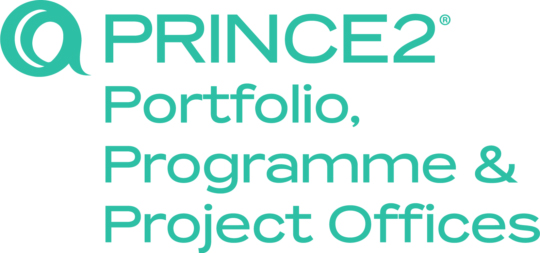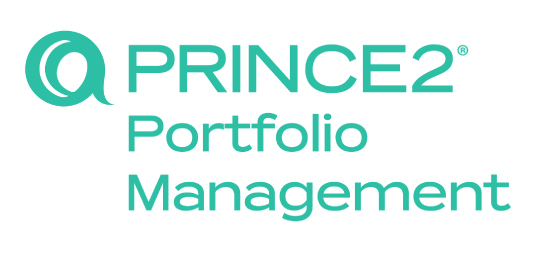Or should that be, what does a good Project Administrator do?
Over many years of providing careers guidance to people working in project support and PMO – plus understanding what organisations want in a Project Administrator, in this article we bring it all together to share with you – what a good Project Administrator does.
The Objective of the Project Administrator Role
To support the Project Manager and Project Team in the administration, co-ordination, planning and control of the project.
The role purely focuses on supporting a project – not a programme, portfolio or PMO.
The Accountability of a Project Administrator
Receives minimal supervision from the Project Manager to ensure the agreed project management methods and standards are implemented throughout the project.
They don’t have any direct reports themselves and whilst they work with and support a Project Manager, that Project Manager may not necessarily be their line manager.
The Knowledge & Experience Required by a Project Administrator
Here’s what is essential that you know and have experience of:
- Understanding of a formal project management methodology – preferably the one being used by the organisation.
- Experience of how the project is being delivered against the lifecycle and methodology in use.
- Understanding of the common and fundamental project management processes e.g., risk management; change control, schedules etc.
- Experience of ‘sometimes’ creating and maintaining project management artefacts e.g., the risk log, the project plan, the project budget.
- A high degree of computer literacy including advanced knowledge of the MS Office Suite – especially MS Excel and Word.
- Ability to work well with people – building trust with the Project Manager and team – being dependable, proactive and working smart.
What makes a really good Project Administrator is someone who is keen to learn and is curious. You’ll be interested in answers to these questions:
- Why are we delivering this project?
- What else is happening project wise in our organisation?
- How do we know that this project will be successful?
- Are there other – better – ways to deliver this project?
When you’re starting to think like this, you certainly have a bright future in PMO work.
The Role and Responsbilities of a Project Administrator
What kind of duties does the Project Administrator carry out?
Here’s a good overview of what you can expect of the job and also what organisation’s are likely to need from their Project Administrators.
- Ensure the agreed project management methods, standards and processes are maintained throughout the project lifecycle.
- Assist the Project Manager and team in the production and maintenance of project plans.
- Develop and maintain the project library, filing, recording and reporting systems.
- Develop and implement appropriate configuration management procedures
- Co-ordinate the production of all reports and produce project summary reports.
- Set up and maintain systems for recording project costs.
- Define and document procedures in accordance with agreed methodology
- Advise and assist project team members in the application of project procedures, disciplines and recording and reporting standards.
- Maintain risk and issue logs and change control records.
- Develop and support effective communication mechanisms between the project teams.
- Undertake any other administrative tasks as specified by the Project Manager.
To carry out these duties well, you’ll need an understanding of the fundamentals of project management – you’ll also need to know how to use that fundamentals knowledge to help you carry out these specific supporting activities.
If you think you’d like to increase your knowledge in any of these key task areas, the Essentials for PMO Administrators certification is the one you need to look into further.
The Behavioural Skills of a Project Administrator
In project management, people are the most important aspect – it’s the way we work with others that really makes projects successful. The Project Administrator is a crucial team member in the project and your own behavioural and interpersonal skills are just as important as anyone elses on the team.
Here’s what we would see with a good Project Administrator:
- You’ll display good judgement, self motivation and excellent organisational skills – you’re able to manage multiple deadlines for example.
- You’ll be able to establish priorities and meet deadlines whilst preserving the high level of accuracy and confidentiality needed.
- You’ll have good interpersonal, oral and written skills and ability to relate to a wide variety of people.
- The ability to work unsupervised and as part of a team is a given – taking that a step further you’ll proactively seek out work and where you can help others.
- You’ll be able to set expectations and deliver on what you promised you would do.
- Sometimes resilience is needed – perseverance whilst understanding others viewpoints and priorities is essential.
- A good project administrator is engaging, enthusiastic about their work and genuinely wants to help remove the blockers where they can so the PM and the team can deliver to the best of their abilities.
We’ve taken a look at the different dimensions to the Project Administrator role. It’s a great entry level position in project management and one which is crucial in projects today. When you first start out in a role like this, a lot of the early days work is understanding the project management fundamentals – the lifecycle, processes, tools and the environment you’re working within.
Many Project Administrators – or those looking to enter at this level – make the mistake of taking a PRINCE2 course in the hope that it will provide a beginners guide to project management. It doesn’t – PRINCE2 is just one project management delivery methodology – it doesn’t cover the fundamentals or basics of project management.
What is needed is a course that covers both the basics of project management AND the role that the Project Administrator is expected to carry out – and how to do this role well.
This course does exist and it’s the Essentials for PMO Administrators – if you’re brand new to the world of projects, working in project support roles (such as PMO Administrator, Project Co-ordinator or Project Support Officer), recently graduated, looking to get into the world of projects, or even those currently working as a Personal Assistant or Executive Assistant thinking about additional skills to add to their current expertise.
Find out more about the Essentials for PMO Adminstrators certification!
Enjoying Our Blog?
Sign up and receive all our articles (we’ll send you an update once a week!) plus special offers and events:






